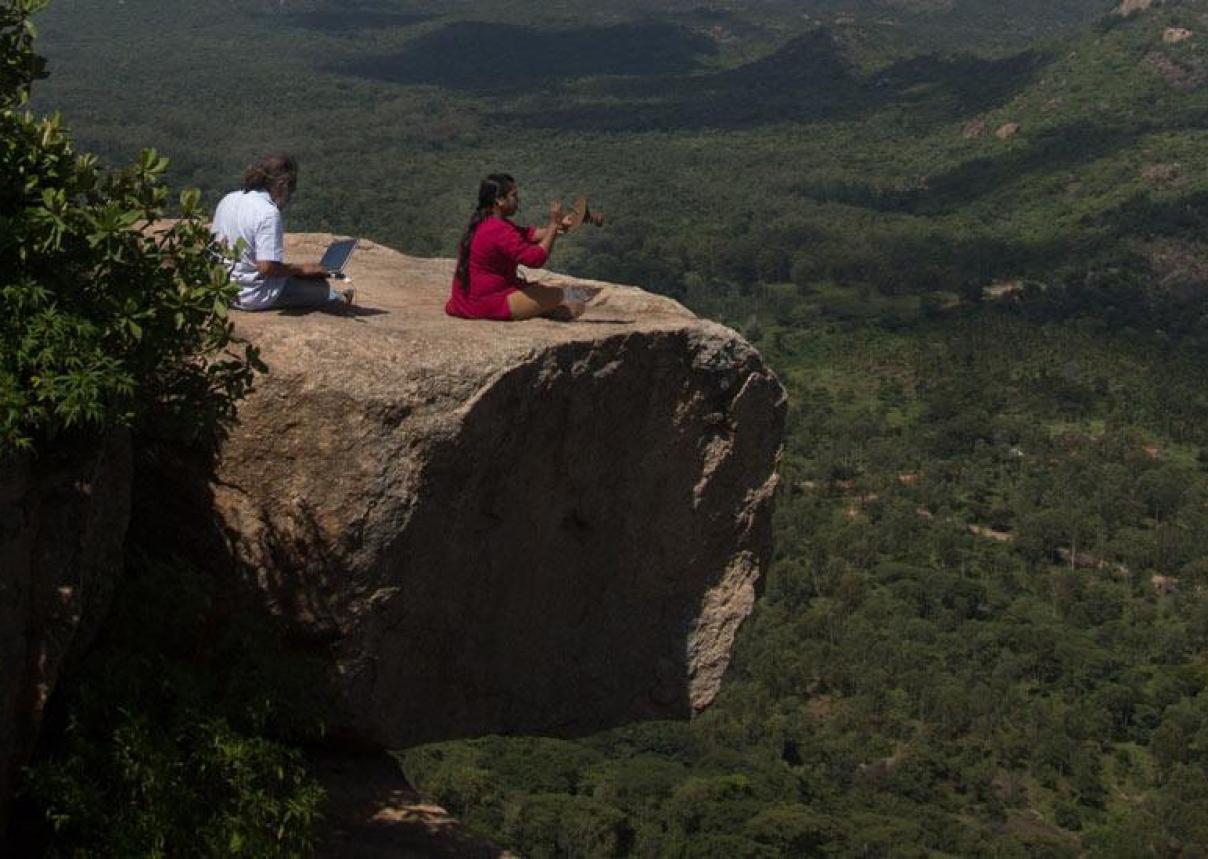
Durgadahalli is a little village that sits snug at the foot of the Devrayanadurga hills that form the outer layer of the ancient Halekote fort. Here, set between fields of millet and coconut plantations, is the craft centre set up by a local organisation, Janastu. At the craft centre is a small team of people completely engrossed in their work, weaving products from sustainable, locally sourced materials. Here, there’s an immense sense of pride in the work that’s been done because the team are all master craftspeople in their own rights and are involved in applying their traditional skills to innovating new functional designs in the products they make.
This bustling centre was built from the ground up by hand, involving the community, about a year ago. It also houses the edit-room for the local radio station Janastu helped set up, called "Namma School Radio" which means "Our School Radio". This participatory radio has two telephone booths in the village (one placed at the centre) where members of the community can come record messages which then get uploaded on to a live database. This content is curated and streamed by three young girls from the village who are currently running the radio. Once they’re done with school and freshened up, Lakshmi, Ramya and Kusuma visit the edit-room where they listen in on the new material recorded in the day, curate it and set it up for broadcasting. They have a program plan for the next couple of months that deals with a diverse set of themes like village life, women’s health, sustainable practices and even radio plays written by them.
One of the core values leading this project is that tech can be for people from different domains – rural, urban, from minority communities. The question being how this has to re-shape or extend itself to the needs of a particular context. One of the solutions Janastu applies to this question is by building community-based knowledge management systems such as Namma School Radio.
Continue reading at GenderIT.org.